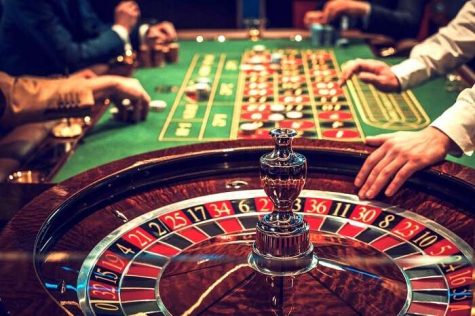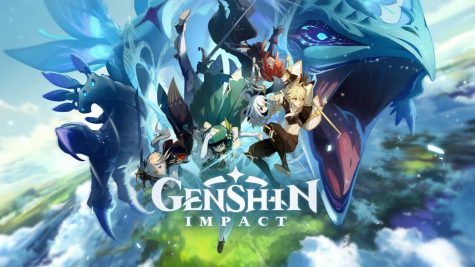Modern Gambling
February 11, 2022
gam·ble
/ˈɡambəl/
Taking risky action in hope for a desired result.

When you hear the word “gambling,” what do you see? You can imagine colorful lights, boisterous crowds, roulette wheels, and slot machines. You can hear the chimes of dispensers, the clacking of dice, and the shuffling of cards. You can envision someone pushing in their chips as they place their bets on a game of poker. This is the image of a casino. Influences like TV shows, books, and social media have instilled this image of gambling into our minds. We’ve been taught to steer away from it due to its adverse effects like bankruptcy and addiction. But as children, the thought of going into a casino is simply a dream. Its age restrictions and obvious flaws are simple deterrents for a reasonable child. However, gambling in the modern age is no longer the casino setting we imagine. Poker tables and chips are replaced with touch screens and in-game currency. Gone are the limits that try to prevent gambling. No longer are identity and age restrictions required, for you can be whatever you want on the Internet. Gambling is now digitized in the form of games and apps that are accessible with a few clicks of a button.
Modern-day society makes it extremely easy to develop digital addiction. Kids are introduced to technology early on, and it becomes a habit to live in a digital world. They have communication, education, and entertainment at their fingertips. Smartphones and computers host all different types of games. Puzzle, first-person shooter, RPG, and open-world are a few genres of accessible games. Some games cost money while others are free. However, underneath its mask of philanthropy are numerous paywalls and in-game currency in the form of lives, money, energy, etc. A “free” game baits you with its seemingly limitless introductory contents but dwindles down the material’s accessibility by instilling time or material restrictions. This brings up the question, “Are free games really free?”
Gacha

Winner of The Game Award for Best Mobile Game in 2021, Genshin Impact has taken the world by storm. This free-to-play open-world action RPG follows the story of Traveler, who is in search of their lost twin in the vast realm of Tevat. In their journey, they become involved in the affairs of Tevat’s nations. Alongside your exploration, you encounter enemies and fight with an action-based system of elemental magic and character-switching. Each playable character has a unique skill set and costume, but is only attainable through a system called “gacha.”
Gacha is a mechanism where one can earn in-game characters or items randomly through the use of “pulls” or “spins.” These are akin to loot boxes and contain different degrees of weapons and characters. From 3 stars to 5, the higher the rarity the better. Somewhat analogous to a slot machine or roulette wheel, you insert money to enter the quick lottery. In Genshin Impact, the chance to enter its lottery is given in the form of an in-game currency called wishes and primogems. As you play the game you earn primogems to fund your wishes. However, the amount earned quickly dwindles down as you complete the game’s stories and achievements. The thrill is gone and players find themselves wanting more.
Those who play Genshin get the taste of gambling for free, but when they want more they gravitate towards the in-game shop. Players who have met the endgame or are desperate for a character then choose to trade real-life currency for in-game to purchase the wishes. The conversion value of real-life to in-game currency is difficult to measure. In real life, you can evaluate the value of something, but online there is no physical representation of what you’ve bought. That is the same with physical money. With paper bills, you can physically see how much you have, but with card transactions, they are harder to track.
Risks of gambling
“The real risk of children and young people developing any addiction is not losing money, but stunting their own development to the point that they will struggle to function in adult life,” says prominent psychologist Liz Karter.
When we look at any addiction, there are always two elements to it: habits and emotional medication. With a gambling addiction, someone can feel that they can manage things like stress, depression, and anxiety by wagering money or material. When it comes to gaming, children can develop that habit if they are going to play it as a way of relaxation or socialization. It can easily become a normal part or recreational activity. This healthy escapism can quickly turn unhealthy once they start spending money on the games. They lose touch with the reality of how much money they spent, and then panic once they realize their loss. This is just the hook as they sink into a cycle of loss chasing.
Children and young adults are developing bodies fueled by hormones. This causes them to be very impulsive. It’s much more likely for them to get addicted to the thrill of hopeful anticipation. And that thrill itself can be so, so addictive.
